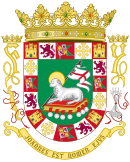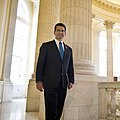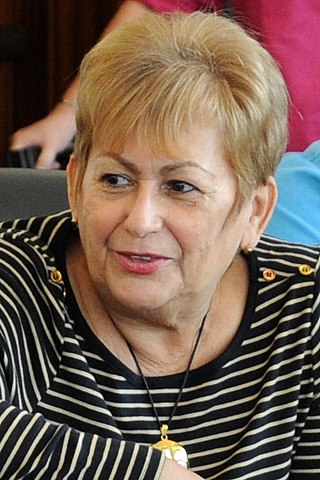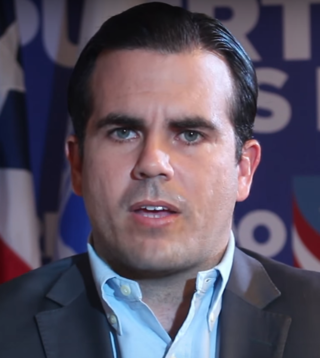District 1| Candidate | Popular vote | Percentage |
|---|
| José "Nuno" López | 7,019 | 45.68% | | Gloria Escudero | 4,245 | 27.63% | | Mario González | 4,073 | 26.51% | | Others | 29 | 0.19% |
District 4| Candidate | Popular vote | Percentage |
|---|
| Liza Fernández | 12,960 | 82.98% | | Nelson A. Rivera | 2,628 | 16.83% | | Others | 30 | 0.19% |
District 5| Candidate | Popular vote | Percentage |
|---|
| Jorge Navarro | 13,136 | 67.59% | | Luisito Fuentes | 6,285 | 32.34% | | Others | 14 | 0.07% |
District 6| Candidate | Popular vote | Percentage |
|---|
| Angel Pérez | 12,439 | 53.53% | | Javier Capestany | 10,788 | 46.42% | | Others | 12 | 0.05% |
District 8| Candidate | Popular vote | Percentage |
|---|
| Antonio Silva | 11,523 | 60.03% | | Mario Tevenal | 7,670 | 39.95% | | Others | 4 | 0.02% |
District 11| Candidate | Popular vote | Percentage |
|---|
| María Vega | 3,742 | 24.10% | | Frank Acha | 3,467 | 22.33% | | Víctor Concepción | 3,100 | 19.96% | | Miguel Angel Figueroa | 2,956 | 19.04% | | Jean P. Rubio | 2,259 | 14.55% | | Others | 4 | 0.03% |
District 14| Candidate | Popular vote | Percentage |
|---|
| Paula Rodríguez | 6,548 | 34.74% | | Yamill | 4,689 | 24.87% | | Gustavo Rodríguez | 4,561 | 24.20% | | Wilson Pantoja | 2,097 | 11.12% | | Charlie Ayala | 956 | 5.07% | | Others | 0 | 0.00% |
District 15| Candidate | Popular vote | Percentage |
|---|
| Arnaldo Jiménez | 6,245 | 30.24% | | Efraín Concepción | 5,612 | 27.17% | | Nino Román | 4,792 | 23.20% | | Rey Escoriaza | 3,998 | 19.36% | | Others | 6 | 0.03% |
District 16| Candidate | Popular vote | Percentage |
|---|
| Iván Rodríguez | 9,820 | 43.13% | | Miguel Trabal | 8,063 | 35.41% | | Elisa Juarbe | 4,878 | 21.42% | | Others | 9 | 0.04% |
District 17| Candidate | Popular vote | Percentage |
|---|
| José L. Rivera | 12,701 | 60.64% | | Junior Robledo | 3,791 | 18.10% | | William | 2,495 | 11.91% | | Rafael Lugo | 1,953 | 9.32% | | Others | 4 | 0.02% |
District 20| Candidate | Popular vote | Percentage |
|---|
| Norman Ramírez | 9,138 | 54.46% | | Lucy Rivera | 7,631 | 45.48% | | Others | 10 | 0.06% |
District 21| Candidate | Popular vote | Percentage |
|---|
| Noel Morales | 8,880 | 58.68% | | Rey | 6,244 | 41.26% | | Others | 10 | 0.07% |
| District 23| Candidate | Popular vote | Percentage |
|---|
| Julissa Nolasco | 7,924 | 49.44% | | Gaddier Oliveras | 4,363 | 27.22% | | Hernán Santiago | 2,274 | 14.19% | | Luis Edgardo Díaz | 1,417 | 8.84% | | Others | 51 | 0.32% |
District 24| Candidate | Popular vote | Percentage |
|---|
| Luis "Tato" León | 9,465 | 70.84% | | John Giménez | 3,891 | 29.12% | | Others | 5 | 0.04% |
District 26| Candidate | Popular vote | Percentage |
|---|
| José Luis Jiménez | 9,290 | 48.14% | | Freddy Santiago | 9,109 | 47.21% | | Emilio | 897 | 4.65% | | Others | 0 | 0.00% |
District 28| Candidate | Popular vote | Percentage |
|---|
| Rafael Rivera | 14,209 | 60.66% | | Carmen Hernández | 6,429 | 27.45% | | Jorge Santini | 2,781 | 11.87% | | Others | 6 | 0.03% |
District 31| Candidate | Popular vote | Percentage |
|---|
| Junior Aponte | 7,498 | 44.91% | | Roberto López | 5,793 | 34.70% | | Edgar Acevedo | 2,045 | 12.25% | | Jorge L. Reyes | 1,347 | 8.07% | | Others | 13 | 0.08% |
District 32| Candidate | Popular vote | Percentage |
|---|
| José R. Camino | 8,038 | 54.65% | | Shirley Ann Casillas | 3,707 | 25.20% | | Magal González | 2,954 | 20.08% | | Others | 9 | 0.06% |
District 33| Candidate | Popular vote | Percentage |
|---|
| Angel Peña, Jr. | 10,707 | 53.36% | | Raúl Rodríguez | 3,773 | 18.80% | | Willy Gómez | 2,922 | 14.56% | | Amparo Rodríguez | 2,582 | 12.87% | | Others | 81 | 0.40% |
District 34| Candidate | Popular vote | Percentage |
|---|
| Cristóbal Colón | 11,676 | 58.19% | | Pickie Díaz | 7,267 | 36.22% | | Lorenzo Valcárcel, Jr. | 1,120 | 5.58% | | Others | 3 | 0.01% |
District 35| Candidate | Popular vote | Percentage |
|---|
| Julio César | 8,367 | 51.95% | | Noé Marcano | 7,724 | 47.96% | | Others | 14 | 0.09% |
District 36| Candidate | Popular vote | Percentage |
|---|
| Johnny Méndez | 10,666 | 70.68% | | Augusto Sánchez | 4,411 | 29.23% | | Others | 13 | 0.09% |
District 37| Candidate | Popular vote | Percentage |
|---|
| Angel Bulerín | 9,197 | 50.51% | | Normis Quintero | 7,591 | 41.69% | | William Cantres | 1,421 | 7.80% | | Others | 1 | 0.01% |
District 38| Candidate | Popular vote | Percentage |
|---|
| Eric Correa | 5,688 | 36.64% | | Joel Cruz Hiraldo | 4,622 | 29.78% | | Raymond Sánchez | 4,239 | 27.31% | | Wilfredo Pérez | 960 | 6.18% | | Others | 13 | 0.08% |
District 39| Candidate | Popular vote | Percentage |
|---|
| Sergio Esteves | 5,821 | 40.47% | | Esther | 4,491 | 31.22% | | César Valentín | 4,056 | 28.20% | | Others | 15 | 0.10% |
District 40| Candidate | Popular vote | Percentage |
|---|
| Elizabeth Casado | 10,931 | 73.14% | | Francisco, Jr. | 4,001 | 26.77% | | Others | 14 | 0.09% |
|




















